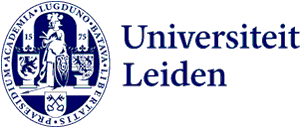
Artificial intelligence project to accelerate MRI scans receives 2 million euros
Leiden University Medical Center (LUMC), Leiden University and Philips are jointly receiving over 2 million euros from NWO to set up an artificial intelligence (AI) lab. The aim of this lab is to accelerate and improve MRI scans with AI. This is great for patients, and it helps make MRI more accessible.
Currently, patients must lie still in a narrow, noisy environment for 15 minutes or up to an hour during an MRI examination. This is not very pleasant. And if the patient does move a little, the MRI scan will be slightly out of focus, making abnormalities difficult to see. Researchers from the Department of Radiology of the LUMC, Leiden University and Philips have been successfully joining forces to accelerate MRI scans with artificial intelligence (AI) since 2019. This financial boost from NWO will speed up their research.

AI in the driving seat
The aim of the collaboration is to record a full MRI examination in less than five minutes. To do this, the researchers are developing AI, which will create a proper MRI image using less data. This could significantly reduce scan time. But the team's ambitions extend beyond accelerating the scan. The researchers also want to develop AI that makes MRI scans resistant to patient movement. In addition, they are focusing specifically on the heart. As this organ is always moving, a scan is extra challenging. With AI, the researchers think they can make a big impact when it comes to scan duration, quality and ultimately patient comfort.
This will not only benefit patients, it will also increase efficiency in radiology departments. Within the project, researchers will therefore also investigate the associated changes in the work place. For instance, the effective use and acceptance of AI MRI scanning can be increased by investigating the impact of this technology on professionals working with it as well as on the organisation and policy context in which it takes place.
Relevant results
Together, the three partners form the AI4MRI lab, which operates within the national network of Innovation Centre for Artificial Intelligence Labs, or ICAI labs. NWO granted a total of 87 million euros to the ROBUST consortium, coordinated by the University of Amsterdam, of which AI4MRI will receive 2.1 million euros. The lab is also in the SAILS programme, which aims to strengthen the AI ecosystem in Leiden.
The scientific management of the AI4MRI ICAI lab consists of LUMC professors Marius Staring and Thijs van Osch from the Department of Radiology, together with Dr Nicola Pezzotti, Senior Scientist at Philips and Assistant Professor at TU/e and professor Bram Klievink from Leiden University. "This NWO grant contributes tremendously to strengthening AI research on MRI," Staring says. "And solidifies the good ties between Leiden and Philips," adds Pezzotti.
"By working intensively together, we strengthen each other's knowledge and competence, resulting in new innovative products that can be used worldwide. The first results have already been introduced (SmartSpeed MRI scans), which gives us great confidence for future improvements that are much needed in healthcare,” concludes Richard Kemkers, Innovation Program Manager at Philips.
